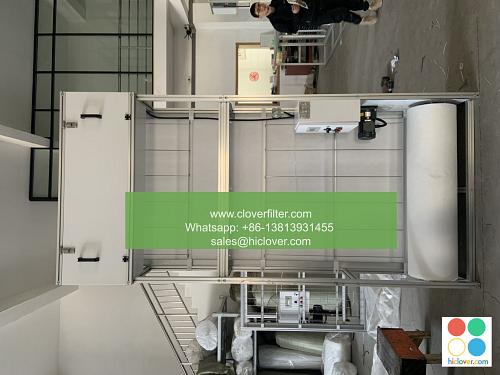How Air Filters Can Improve Indoor Air Quality

The Importance of Good Air Quality: How Air Filters Can Make a Difference
Introduction
Indoor air quality (IAQ) is a growing concern for many homeowners and building owners. Poor air quality can lead to a range of serious health issues, from respiratory problems to headaches and even long-term damage to property. This is where air filters come in – playing a vital role in ensuring a healthy and comfortable indoor environment.
The Risks of Poor Air Quality
Before we dive into the benefits of air filters, it’s essential to understand the risks associated with poor IAQ. Some of the most common issues include:
- Poor respiratory health: Poor air quality can exacerbate respiratory conditions such as asthma and chronic obstructive pulmonary disease (COPD).
- Increased allergy and asthma symptoms: Pollutants and allergens in the air can trigger allergic reactions and asthma attacks.
- Headaches and fatigue: Long-term exposure to poor air quality can lead to headaches, fatigue, and decreased productivity.
- Dust and dirt accumulation: Poor air quality can lead to the buildup of dust and dirt on surfaces, exacerbating allergies and respiratory issues.
- Improved respiration: By removing pollutants and allergens, air filters can improve respiratory health and reduce the risk of asthma attacks and other respiratory issues.
- Reduced allergy and asthma symptoms: High-quality air filters can reduce allergy and asthma symptoms by removing common allergens like dust, pollen, and pet dander.
- Increased productivity and comfort: Clean air improves cognitive function and reduces fatigue, making it easier to work and live in your home or office.
- Protection of property and belongings: Air filters can reduce the amount of dust and dirt that settles on surfaces, preserving your property and reducing the need for frequent cleaning.
- Residential homes: Improve the air quality in your home with whole-house air filtration systems or individual room filters for optimal performance.
- Offices and commercial spaces: Keep your employees and customers comfortable and healthy with commercial-grade air filters designed for high-traffic areas.
- Hospitals and healthcare facilities: Ensure a healthy environment for patients, staff, and visitors by installing HEPA-grade air filters that capture 99.97% of airborne particles.
- Agricultural and industrial settings: Keep workers and equipment safe from dust and contaminants with specialized air filters designed for industrial and agricultural applications.
- Filter type: Look for filters with a MERV rating (minimum efficiency reporting value) that suits your specific needs.
- Filter material: Consider filters made from fiberglass, activated carbon, or HEPA-grade materials for maximum effectiveness.
- CADR: Check the filter’s clean air delivery rate (CADR) to ensure it can handle the air volume of your space.
- Filter size and installation: Ensure a proper fit and easy installation with filters designed for your specific application.
The Benefits of Air Filters
Air filters can significantly improve indoor air quality by removing pollutants, allergens, and other contaminants from the air. Some of the key benefits include:
Key Areas for Air Filter Application
Air filters are essential in various applications, including:
Choosing the Right Air Filter for Your Needs
With the many types of air filters available, it’s essential to choose the right one for your needs. Some factors to consider include:
Conclusion
In conclusion, air filters play a vital role in maintaining healthy indoor air quality. By removing pollutants, allergens, and contaminants, air filters can improve respiration, reduce allergy and asthma symptoms, increase productivity, and protect property and belongings. By choosing the right air filter for your needs, you can enjoy a healthier, more comfortable, and more productive living and working environment.
It looks like you’re ready to start a conversation! I’m here to listen and help in any way I can.
What’s on your mind? Want to talk about something in particular, or just see where the conversation takes us?


